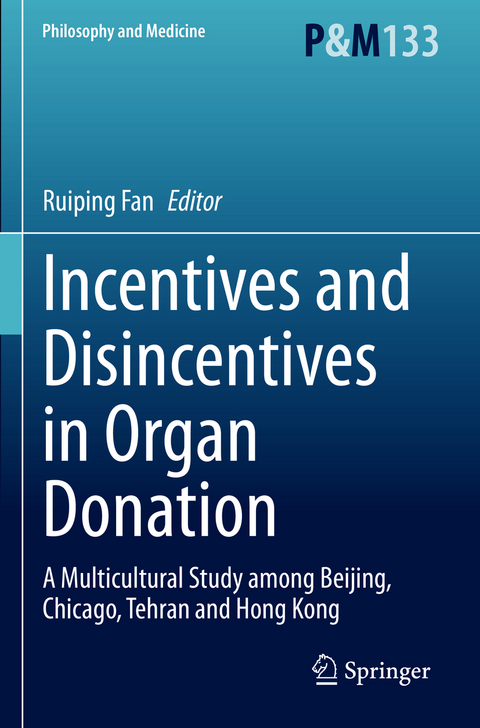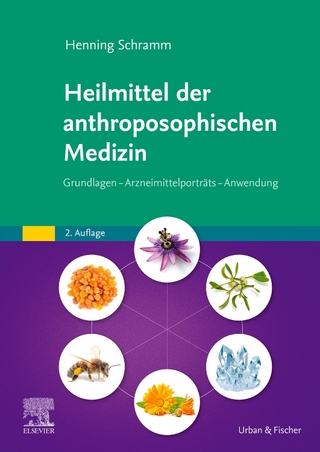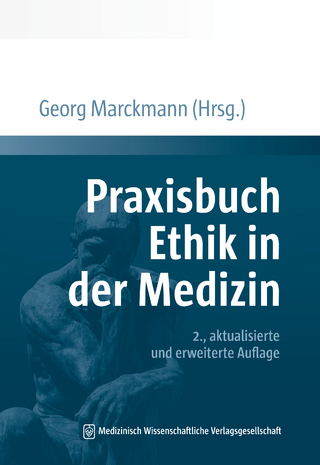
Incentives and Disincentives in Organ Donation
Springer International Publishing (Verlag)
978-3-031-29241-5 (ISBN)
This book provides the first systematic study on three types of incentives for organ donation. It covers extensive research conducted in four culturally different societies: Hong Kong, mainland China, Iran and the United States, and shows on the basis of the research that a new model of incentives can be constructed to enhance organ donation in contemporary societies. The book focuses on three types of incentives: honorary incentives, commonly adopted in the United States and other Western countries by offering things such as a thank-you card and a memorial park for donors to encourage donations motivated by pure altruism; compensationalist incentives, adopted in the Islamic Republic of Iran to encourage donation by providing monetary compensation to unrelated living donors for appreciating their altruistic contribution of donation; and familist incentives, implemented in Israel and mainland China to provide priority to organ transplantation to donors and/or their family members. The book demonstrates that a new model of incentives must go beyond offering only one type of incentives and should rather include different types of incentives that are practically effective, politically legitimate and ethically justifiable for particular societies. This implies that suitable incentive measures may vary from society to society to optimize organ donation. This book provides a clear reference for both the scholars and practitioners in the field of organ transplantation, as well as for general readers interested in bioethics and health care policy.
Ruiping Fan received his Ph.D. in philosophy from Rice University. He is Professor of Philosophy in the Department of Public & International Affairs at the City University of Hong Kong. He also serves as Co-Editor of the International Journal of Chinese & Comparative Philosophy of Medicine (Hong Kong), Associate Editor for both the Journal of Medicine & Philosophy (USA) and the Chinese Medical Ethics (PRC), and on the Editorial Board of the Philosophy and Medicine book series (via Springer). His research focuses on Confucian bioethics, Chinese and comparative philosophy, and ethics and public policy. In addition to over 180 journal articles and book chapters (100 in English and 80 in Chinese) published, he has also authored Reconstructionist Confucianism: Rethinking Morality after the West (in English, 2010) and Contemporary Confucian Bioethics (in Chinese, 2011). He was the editor or co-editor of Confucian Bioethics (in English, 1999), Confucian Society and the Revival of Dao (in Chinese, 2008), the Renaissance of Confucianism in Contemporary China (in English, 2011), Confucian Constitution and China's Future (in Chinese, 2012), Ritual and the Moral Life (in English, 2012), Confucian Constitutional Order (in English, 2013), Family-oriented Informed Consent: East Asian and American Perspectives (in English, 2015), Building Chinese Bioethics: New Explorations (in Chinese, 2017), Building Chinese Bioethics: Combating the Covid Pandemic (in Chinese, 2020), and Sex Robots (in English, 2021).
Part 1. Introduction.- Chapter 1. Towards a New Model of Incentives for Organ Donation (Ruiping Fan).- Part 2. Beijing papers.- Chapter 2. The Background of Organ Donation in Mainland China (Guangkuan Xie).- Chapter 3. Mixed Incentives, Different Voices: A Qualitative Study of Organ Donation Incentive Policies in Two Big Chinese Cities (Jian Tang).- Chapter 4. Organ Donation Incentives in Mainland China: Ethical Commentaries and Reform Recommendations (Jian Tang).- Part 3. Chicago papers.- Chapter 5. The Concepts and Development of Organ Donation Policy in the United States (Wan-Zi Lu).- Chapter 6. Interviews in Chicago (Wan-Zi Lu).- Chapter 7. Ethical Considerations about Three Incentive Models based on Research in Chicago (Wan-Zi Lu).- Part 4. Tehran papers.- Chapter 8. The Kidney Transplantation Program in Iran (Mitra Mahdavi-Mazdeh).- Chapter 9. Interview Findings of the Organ Donation in Iran (Mitra Mahdavi-Mazdeh).- Chapter 10. A Comment on the Barriers and Incentivesof Organ Donation in Iran (Mitra Mahdavi-Mazdeh).- Part 5. Hong Kong papers.- Chapter 11. Organ Donation: The Hong Kong Context (Ho Mun Chan).- Chapter 12. Incentives for Organ Donation in Hong Kong: In-depth Interviews (T-fai Yeung).- Chapter 13. Incentives for Organ Donation in Hong Kong: A Survey (Yang Zheng).- Chapter 14. Organ Donation, Comprehensively Good Incentives, and the Family: A Comment on Hong Kong's Interview Findings and Survey Results (Ruiping Fan).- Part 6. Implications for Hong Kong and other societies: Towards a New Model.- Chapter 15. Organ Donation Incentives: A Multicultural Comparison (Lisa M. Rasmussen).- Chapter 16. Organ Donation Incentives: Implications for Hong Kong and Beyond (Chunyan Ding).
"This book provided an in-depth analysis of challenges and opportunities in the ethical, cultural, social, and legal of organ donation around the world. ... This book particularly emphasized the uniqueness and challenges faced by the incentive models ... and advocated the adoption of comprehensive incentive strategies and customized policies based on different cultural backgrounds. Additionally it also proposed recommendations for further research and policy formulation. This work ... provided important theoretical support for the improvement of organ donation policies worldwide." (Wang Shuai, Chinese Medical Ethics, Vol. 37 (1), January, 2024)
“This book provided an in-depth analysis of challenges and opportunities in the ethical, cultural, social, and legal of organ donation around the world. … This book particularly emphasized the uniqueness and challenges faced by the incentive models … and advocated the adoption of comprehensive incentive strategies and customized policies based on different cultural backgrounds. Additionally it also proposed recommendations for further research and policy formulation. This work … provided important theoretical support for the improvement of organ donation policies worldwide.” (Wang Shuai, Chinese Medical Ethics, Vol. 37 (1), January, 2024)
| Erscheinungsdatum | 05.05.2024 |
|---|---|
| Zusatzinfo | IX, 296 p. 1 illus. |
| Verlagsort | Cham |
| Sprache | englisch |
| Maße | 155 x 235 mm |
| Themenwelt | Geisteswissenschaften ► Philosophie |
| Medizin / Pharmazie ► Medizinische Fachgebiete ► Medizinethik | |
| Schlagworte | Bioethics and Healthcare Policy • Honorary, Compensationalist, and Familist Incentives • Incentives • Multicultural Study • Organ Donation |
| ISBN-10 | 3-031-29241-3 / 3031292413 |
| ISBN-13 | 978-3-031-29241-5 / 9783031292415 |
| Zustand | Neuware |
| Haben Sie eine Frage zum Produkt? |
aus dem Bereich


